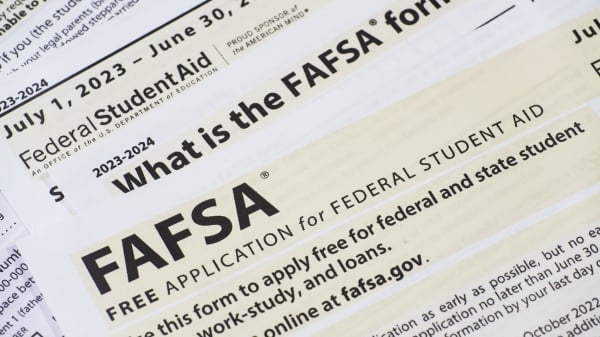The Free Application for Federal Student Aid (FAFSA) is a crucial tool for students seeking financial assistance to pursue higher education. However, the recent rollout of the FAFSA has been marred by numerous issues, highlighting deeper problems within the system.
The troubled rollout of the FAFSA began in October, when the application opened for the 2022-2023 academic year. Many students and parents reported difficulties in accessing the online application, with frequent error messages and long wait times. This led to frustration and anxiety among applicants, who rely on the FAFSA to secure financial aid for college.
The problems with the FAFSA rollout are not just technical glitches – they point to deeper issues within the financial aid system. One major issue is the complexity of the FAFSA application itself. The form is notoriously lengthy and confusing, requiring detailed information about a student’s and their family’s financial situation. This complexity can deter some students from applying for aid, or lead to errors that result in inaccurate awards.
Another issue is the timing of the FAFSA rollout. The application opens in October, months before most students have received acceptance letters from colleges or finalized their plans for the upcoming academic year. This can create uncertainty and confusion for students, who may not know how much financial aid they will need until they have a clearer picture of their college expenses.
Additionally, the FAFSA system relies heavily on income and asset information from the previous year, which may not accurately reflect a student’s current financial situation. This can result in students receiving less aid than they need, or being ineligible for aid altogether.
The troubled FAFSA rollout highlights the need for reform in the financial aid system. Simplifying the application process, providing clearer guidance to students and families, and adjusting the timing of the FAFSA opening could help alleviate some of the issues facing applicants.
In the meantime, students and families are advised to be proactive in seeking financial aid and to reach out for assistance if they encounter problems with the FAFSA application. Despite its flaws, the FAFSA remains a critical tool for students seeking to fund their education, and it is important that these issues are addressed to ensure that all students have access to the financial aid they need.



